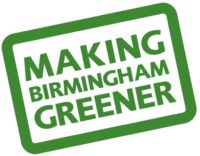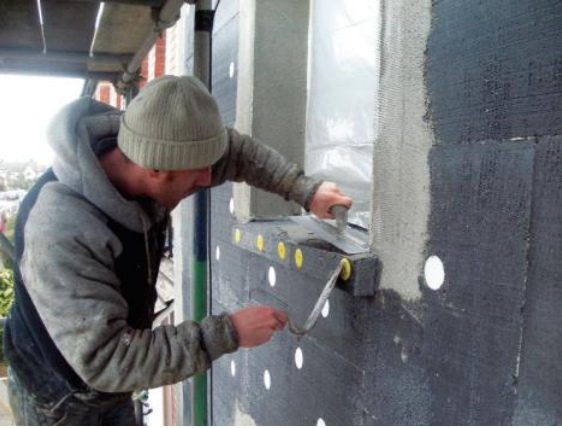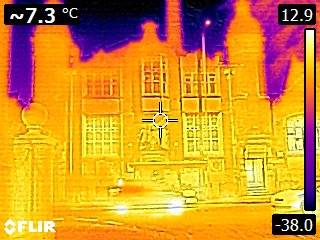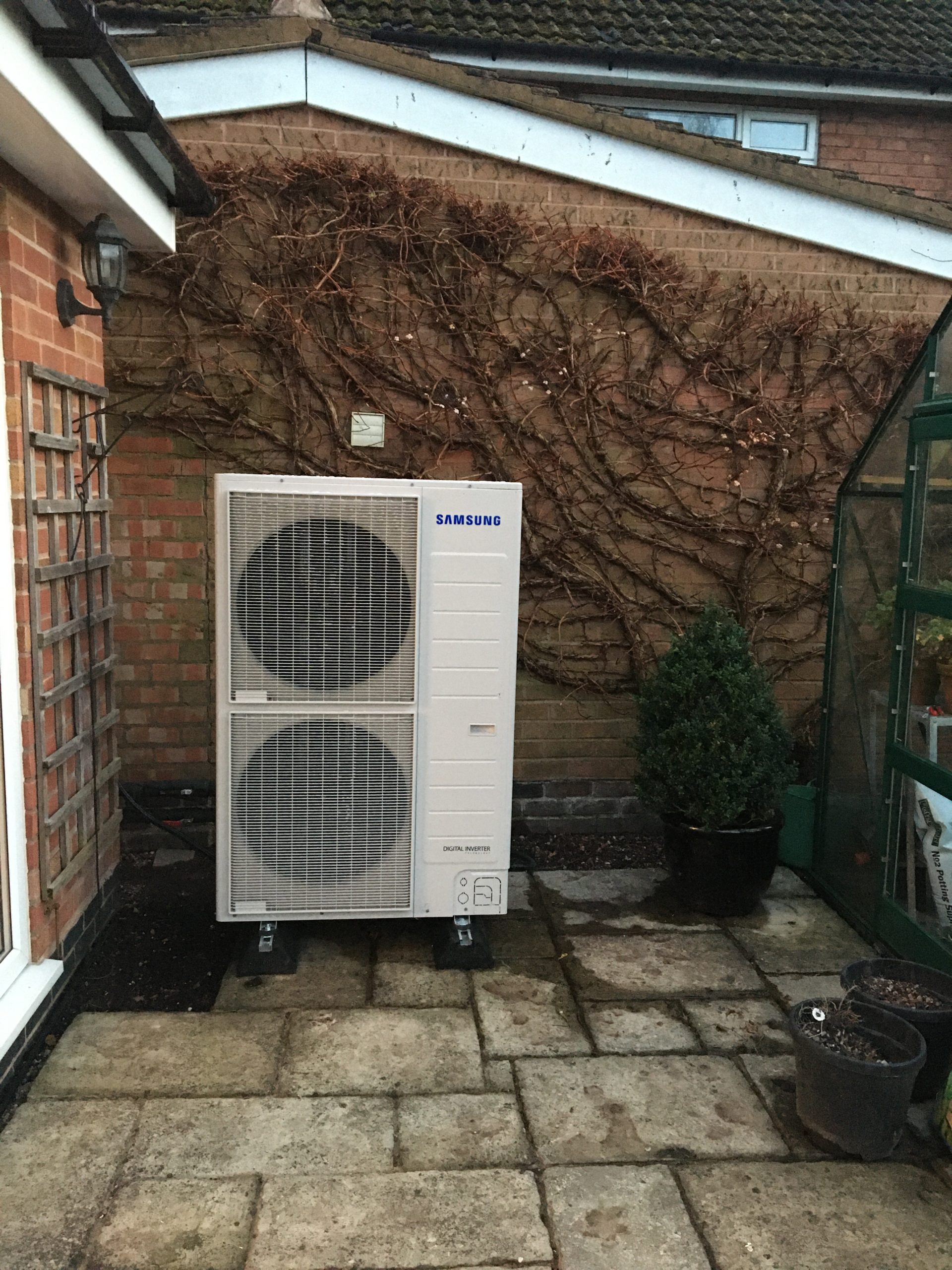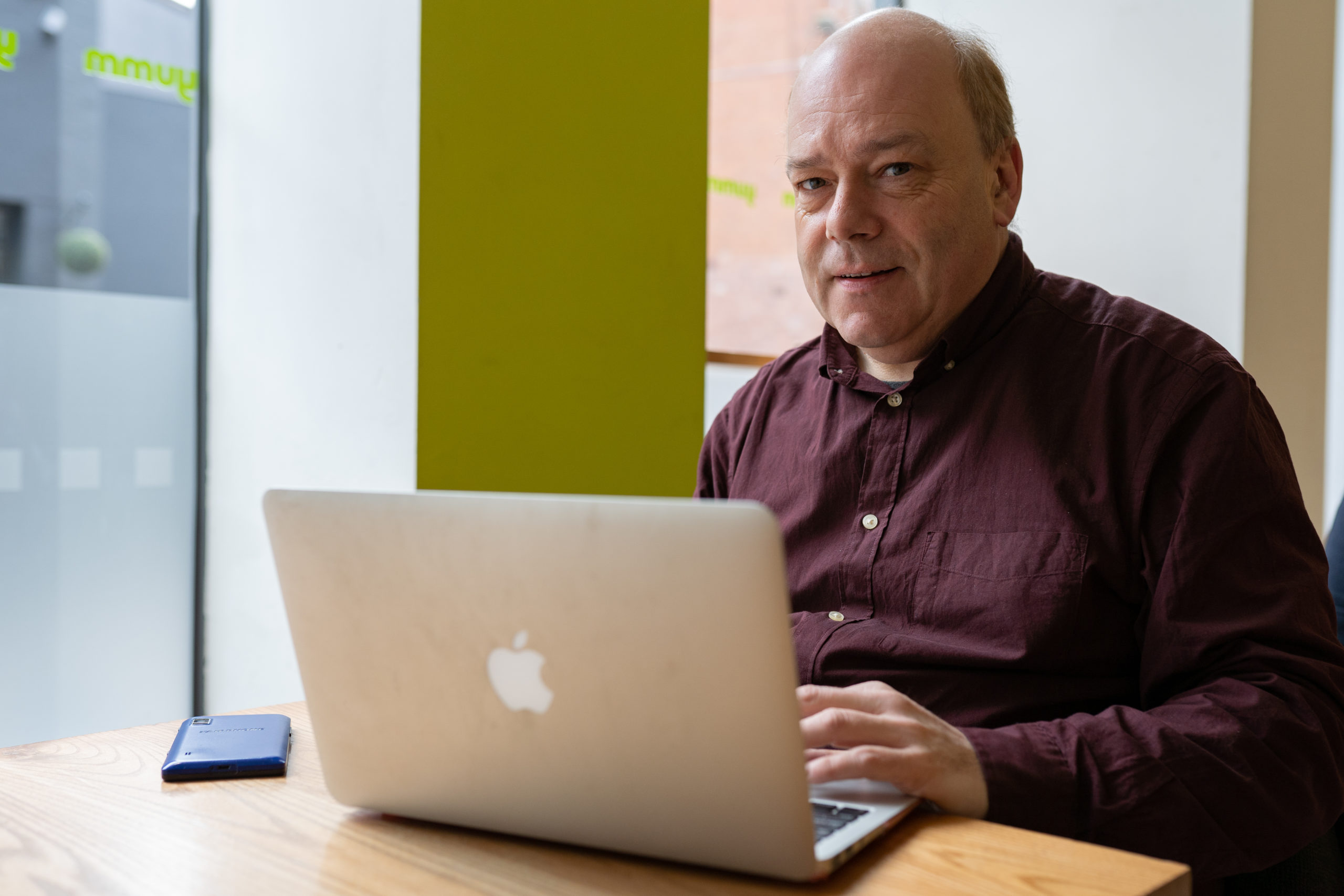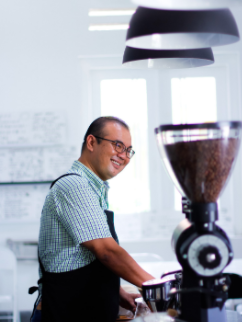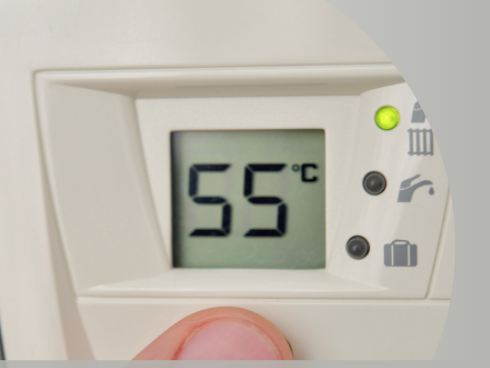
Saving the planet with The Fab 55
Does your home or small business have a combination boiler? With no hot water cylinder? You could save energy, money and greenhouse gas emissions by turning the boiler temperature to your radiators down to 55 degrees or below.
If you have a boiler with a hot water cylinder or heat store? You could still save – but it’s slightly more complicated with this type of boiler. So read on …
Making better use of existing heating controls is one thing almost every home or business can do to reduce their Greenhouse Gas emissions NOW … and it’s free.
The government has recently announced that on all new heating systems, the maximum boiler temperature should be set to 55 degrees. This is long overdue. But you don’t have to wait until you have a new heating system. You can be part of The Fab 55 right now.
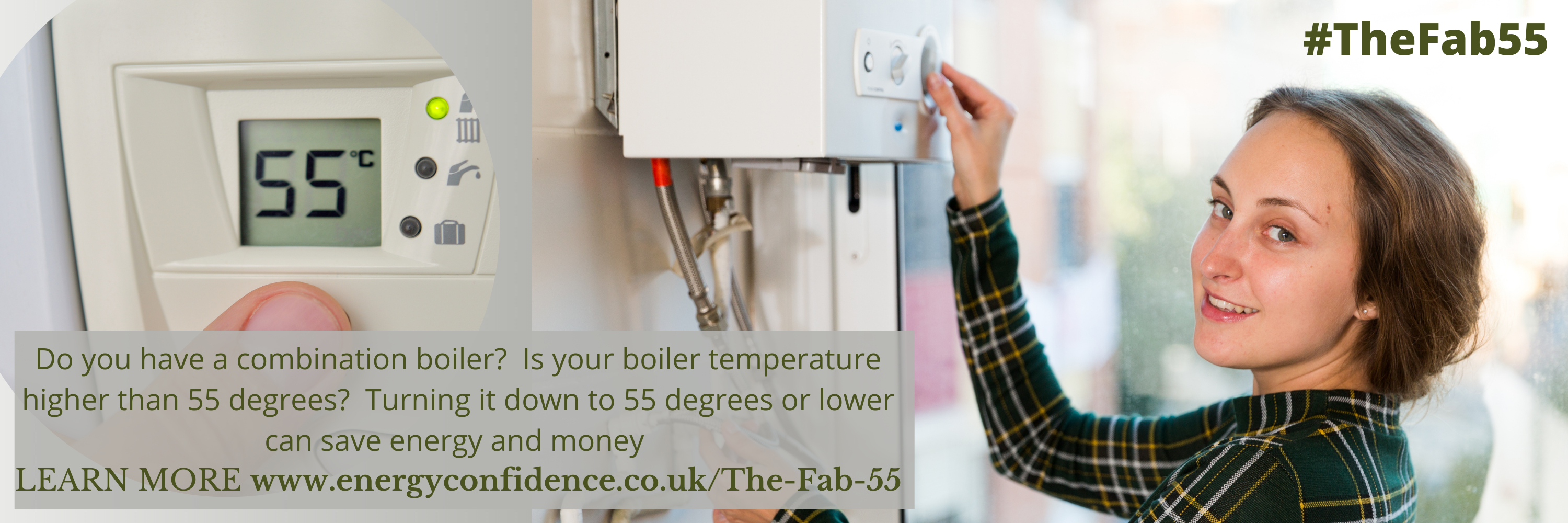
If your boiler has been installed in the last 15 years, it is almost certainly a condensing boiler, whether it’s mains gas, heating oil, or LPG. It is designed to run at lower temperatures than older gas boilers. In fact it MUST be run at 55 degrees or lower in order to operate in condensing mode. If you run it at too high a temperature, then the water going back to the boiler from your radiators or under-floor heating will be too hot, and this excess heat will escape through the flue. This is not how condensing boilers were designed to work. Condensing boilers have a second heat exchanger, which is what makes them potentially more efficient than older boilers. But if the boiler temperature to the radiators is too high, then the boiler will run in non-condensing mode, wasting energy, money and greenhouse gases. Unfortunately I often see clients, both householders and businesses, where the boiler temperature to the radiators has been set to 60 or even 70 degrees.
Will it be cold if I turn the boiler temperature down?
You can get the same amount of heat to keep your home or business warm by running the heating for longer. A steady background heat during the heating season is more efficient than short bursts of on/off using the timer. You should also regularly monitor your room thermostats. You should not treat the thermostatic radiator valves like a motorbike throttle – it’s not good to turn them up and down too frequently. It’s best not to let temperatures fall below 16 degrees in a home at night, because that can be dangerous for people with cold related medical conditions.
If you have a combination boiler, you can experiment with turning your boiler temperature to the radiators to below 55 degrees – to 45 degrees. Do it in stages, not all at once.
How do I know if I have a combination boiler?
These are the signs:
- A combination boiler doesn’t have a hot water cylinder or heat store
- Google the manual for your boiler make and model – it will tell you if it’s a combination boiler.
If your boiler does have a hot water cylinder or heat store, then it’s not a combination boiler. See below.
How do I know if I have a condensing boiler?
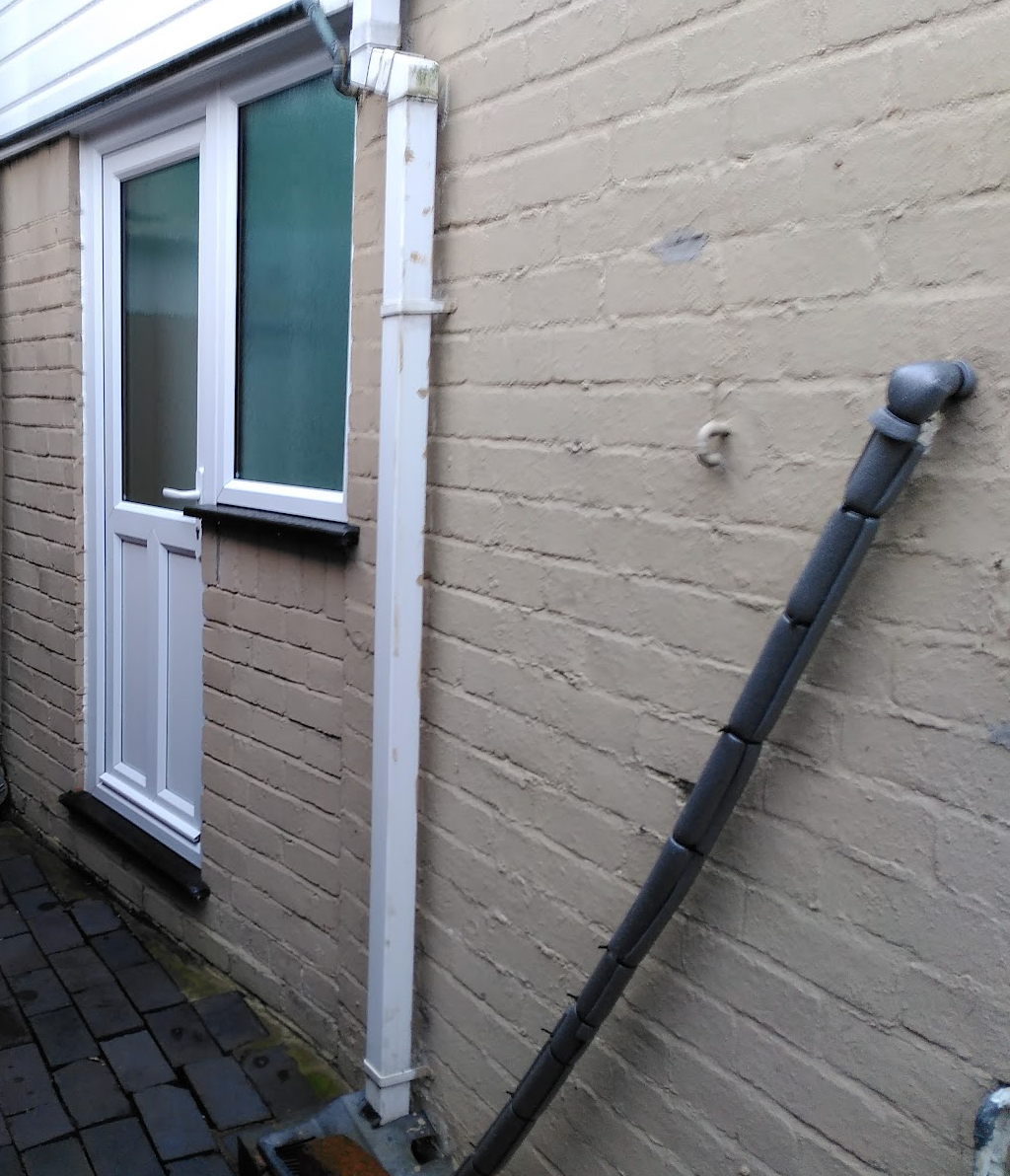
All boilers can be condensing boilers. This includes combination boilers, and boilers with a hot water cylinder/heat store.
- A condensing boiler will have a condensate pipe (see photo) that evacuates condensed flue gases down your drain. This will usually be an insulated diagonal pipe outside. If your washing machine is below your boiler then the installer might have done a very clever thing where the condensed flue gases run out of your washing machine outlet pipe, so there won’t be an additional condensing pipe outside your home.
- Google the manual for your boiler make and model – it will tell you if it’s a condensing boiler.
If you don’t have a combination boiler …
Then you can still have the boiler temperature for the radiators at 55 degrees or lower, but it’s too complicated to explain in a blog as it varies from manufacturer to manufacturer. Google the manual for your boiler make and model.
If you have a hot water cylinder or heat store, then you must ensure that the stored hot water is not at risk of legionella bacteria. Normally this means making sure the temperature is raised to 60 degrees periodically to kill off the bacteria. Do not take risks with a hot water cylinder temperature – consult the boiler manual.
If your home is heated by a different type of heating system, e,g, electric radiators or storage heaters, then the same principle applies, that a steady background heat is preferable, although this might be harder to achieve with storage heaters.
Getting your building “heat pump ready”
If you are considering having a heat pump, then it is essential that you run the heat pump at lower temperatures of 55 degrees or lower. Practising running your existing boiler at lower temperatures is one of the most important thing you can do to make your home or business heat pump ready.
Let’s make you energy confident
If you sign up to one of my energy advice packages, I will help you get energy confident so you know you are doing the right things to reduce the environmental impact of your home, business or non-profit.

About me

I am the West Midlands’ leading expert in:
- energy saving
- renewable energy
- procurement of energy saving products
- water saving.
My customers include householders, landlords, public bodies, small businesses, charities and coops.
I am independent and impartial.
Phil Beardmore, FRSA AIEMA.
TESTIMONIALS
Nathalie Rush
Phil is truly an expert in his field. I can understand why most people around the West Midlands choose to go to Phil for energy-saving consultancy. Phil has a thorough understanding of energy conservation and sustainable living. Would highly recommend. Nathalie Rush, MD, Six Star Insulation.
Claire Spencer
His knowledge of community-led sustainability is second to none, and his perspective on local and national issues is invaluable to us. He adds value, and is everything a good consultant should be, and I would recommend him to anyone in our field Claire Spencer, Sustainable Moseley.
Rosemary Coyne
It has been hugely inspiring to work with Phil. While others talk, Phil gets on and does it. Rosemary Coyne, Coordinator, Sustainable Housing Action Partnership
Ray Walker
In working with Phil I have been impressed by his level of knowledge and enthusiasm. He has a vast array of contacts and has brought us into contact with other stakeholder in the energy business that would have been much more difficult to achieve without him. I am also struck by his commitment to supporting communities and the most vulnerable client groups.
Ray Walker, Disability Resource Centre
Cllr Karen McCarthy
Phil Beardmore has a long association with Localise West Midlands and is a valued associate on environmental, housing and fuel poverty projects.
He works with us both as an individual practitioner and leading multi-disciplinary teams on larger projects, delivering high quality results on time and on budget.
Cllr Karen McCarthy, Localise West Midlands







